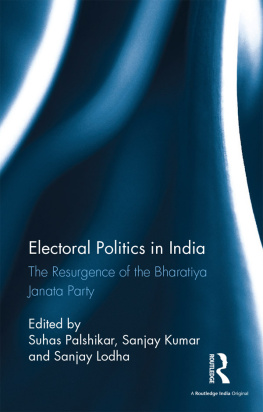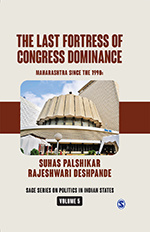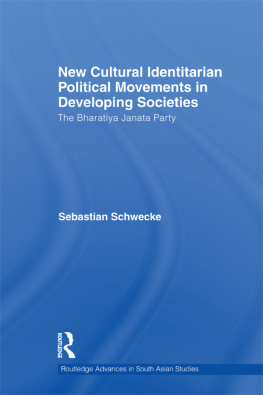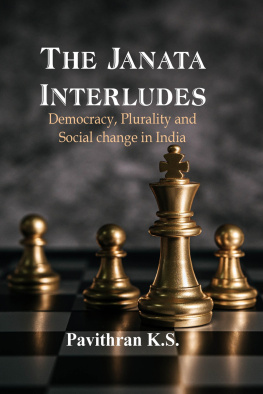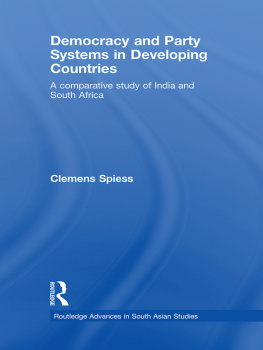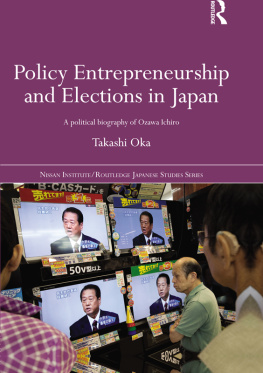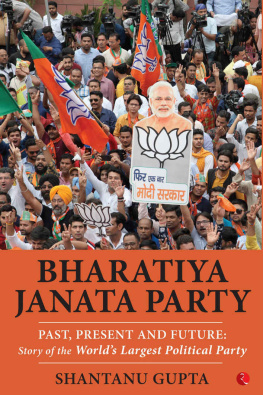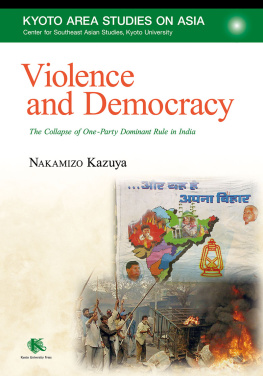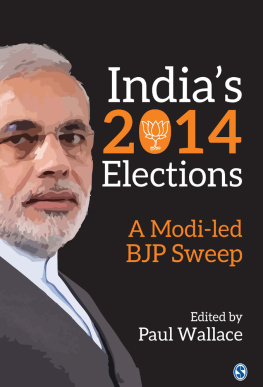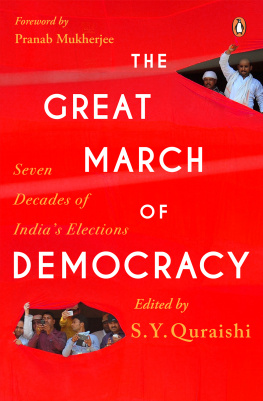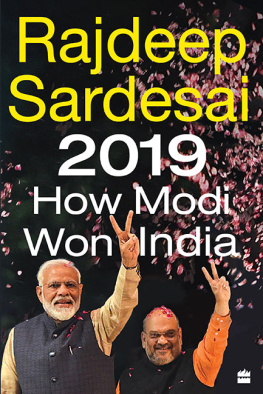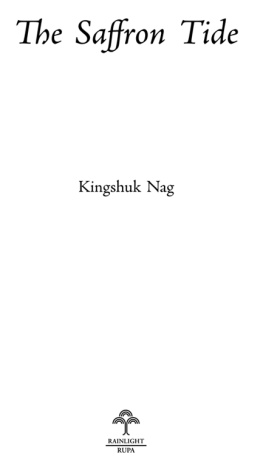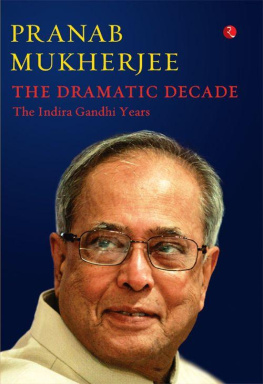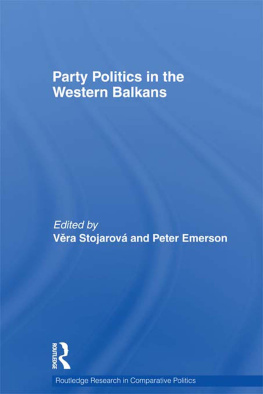Electoral Politics in India
The general elections held in 2014 in India the largest democracy in the world to elect the 16th Lok Sabha brought in dramatic results. This important volume explains not only the startling victory of the Bharatiya Janata Party (BJP) but also the equally surprising downfall of the Congress Party. It examines not why BJP won and the Congress lost, but why the scale of BJPs victory and that of Congresss defeat was so very different from the results in the years 2004 and 2009. The volume presents an in-depth analysis of the electoral results, state-wise studies, the factors leading up to these outcomes, and the road India has travelled since then.
With contributions from Indias leading political scientists, psephologists, sociologists and political commentators, this book will be of great interest to scholars and researchers of Indian politics, democracy and political parties, as well as South Asian studies.
Suhas Palshikar taught Political Science at the Savitribai Phule Pune University, Pune, Maharashtra, and is the Co-Director of the Lokniti programme, Centre for the Study of Developing Societies, Delhi, India.
Sanjay Kumar is Professor and Director at the Centre for the Study of Developing Societies, Delhi, India.
Sanjay Lodha teaches in the Department of Political Science at Mohanlal Sukhadia University, Udaipur, Rajasthan, India.
Electoral Politics in India
The Resurgence of the Bharatiya Janata Party
Edited by Suhas Palshikar, Sanjay Kumar and Sanjay Lodha

First published 2017
by Routledge
2 Park Square, Milton Park, Abingdon, Oxon OX14 4RN
and by Routledge
711 Third Avenue, New York, NY 10017
Routledge is an imprint of the Taylor & Francis Group, an informa business
2017 selection and editorial matter, Suhas Palshikar, Sanjay Kumar and Sanjay Lodha; individual chapters, the contributors
The right of Suhas Palshikar, Sanjay Kumar and Sanjay Lodha to be identified as the authors of the editorial material, and of the authors for their individual chapters, has been asserted in accordance with sections 77 and 78 of the Copyright, Designs and Patents Act 1988.
All rights reserved. No part of this book may be reprinted or reproduced or utilised in any form or by any electronic, mechanical, or other means, now known or hereafter invented, including photocopying and recording, or in any information storage or retrieval system, without permission in writing from the publishers.
Trademark notice: Product or corporate names may be trademarks or registered trademarks, and are used only for identification and explanation without intent to infringe.
British Library Cataloguing-in-Publication Data
A catalogue record for this book is available from the British Library
Library of Congress Cataloging-in-Publication Data
A catalog record for this book has been requested.
ISBN: 978-1-138-20194-1 (hbk)
ISBN: 978-1-315-27662-5 (ebk)
Typeset in Bembo
by Apex CoVantage, LLC
Contents
SANJAY LODHA, SUHAS PALSHIKAR AND SANJAY KUMAR
Part I
The Big Picture
PRADEEP CHHIBBER AND RAHUL VERMA
SUHAS PALSHIKAR
BISWAJIT MOHANTY AND SHREYAS SARDESAI
K.K. KAILASH
Part II
States that brought victory to BJP
A.K. VERMA, MIRZA ASMER BEG AND SUDHIR KUMAR
SANJAY KUMAR
E. VENKATESU
RAJESHWARI DESHPANDE AND NITIN BIRMAL
Part III
Predominance of state specificity
K.M. SAJAD IBRAHIM
P. RAMAJAYAM
PRAMOD KUMAR RAY AND PRABHAT CHANDRA MOHANTY
JYOTIPRASAD CHATTERJEE AND SUPRIO BASU
Part IV
New trends
SANDEEP SHASTRI AND REETIKA SYAL
MOHD. SANJEER ALAM AND HILAL AHMED
SANJAY KUMAR
RAHUL VERMA AND SHREYAS SARDESAI
E. SRIDHARAN
SUHAS PALSHIKAR AND K.C. SURI
Hilal Ahmed is Associate Professor at the Centre for the Study of Developing Societies (CSDS), Delhi, India. He works on political Islam, Muslim modernities/representation and politics of symbols in South Asia.
Mohd. Sanjeer Alam is Assistant Professor at the Centre for the Study of Developing Societies (CSDS), Delhi, India. His research covers a wide variety of themes including structural and behavioural aspects of politics in India.
Suprio Basu is Assistant Course Director, Rural Awareness and Self Employment Course, Department of Sociology, University of Kalyani, Nadia, West Bengal, India. He has been Loknitis Coordinator for the state of West Bengal since 2006.
Mirza Asmer Beg is Professor in the Department of Political Science at the Aligarh Muslim University, Aligarh, Uttar Pradesh, India. He specializes in strategic studies and electoral politics.
Nitin Birmal is Associate Professor in the Department of Political Science at Dr. Ambedkar Arts and Commerce College, Savitribai Phule Pune University, Pune, India. His area of research is political economy and political process in Maharashtra.
Jyotiprasad Chatterjee is Associate Professor in the Department of Sociology, Barrackpore Rastraguru Surendranath College, West Bengal, India. He pursues research in the field of social movements and democracydevelopment interface, has edited a volume and contributed articles to different journals and collected volumes.
Pradeep Chhibber is Professor of Political Science at the University of California at Berkeley, USA. He is also Director of the Institute of International Studies and the Indo-American Community Chair in India Studies. He studies party systems, party aggregation and the politics of India. His most recent book is Religious Practice and Democracy in India (2014, with Sandeep Shastri).
Rajeshwari Deshpande teaches Political Science at the Savitribai Phule Pune University, Pune, Maharashtra, India.
K.M. Sajad Ibrahim is Associate Professor in the Department of Political Science, University of Kerala, Thiruvananthapuram, Kerala, India. He is also the Director of UGC-Nehru Studies Centre, University of Kerala.
K.K. Kailash teaches in the Department of Political Science, University of Hyderabad, India.
Sanjay Kumar is Professor and Director at the Centre for the Study of Developing Societies, Delhi, India. His core area of research is electoral politics, but using survey method, he has also been engaged in research on the Indian youth, state of democracy in South Asia and slums of Delhi. His recent publications include Indian Youth and Electoral Politics: An Emerging Engagement, Changing Electoral Politics in Delhi: From Caste to Class and Measuring Voting Behaviour in India (with Praveen Rai).
Sudhir Kumar retired as Associate Professor, Department of Political Science at DAV College, Azamgarh, Uttar Pradesh, India. He has a keen interest in electoral politics, political sociology and the politics of Uttar Pradesh and has published in various journals and books in the field.
Sanjay Lodha teaches in the Department of Political Science at Mohanlal Sukhadia University, Udaipur, Rajasthan, India. Previously, he was with the Directorate of College Education, Government of Rajasthan, as Senior Lecturer. He pursued his higher education from St Xaviers College, Calcutta, and JNU, New Delhi. His areas of specialization include state politics, electoral studies, and international relations. He has published/co-authored six books and has contributed to a number of publications. He has more than 40 articles in Hindi and English in reputed academic journals and has completed a number of research projects with national and international institutions.

